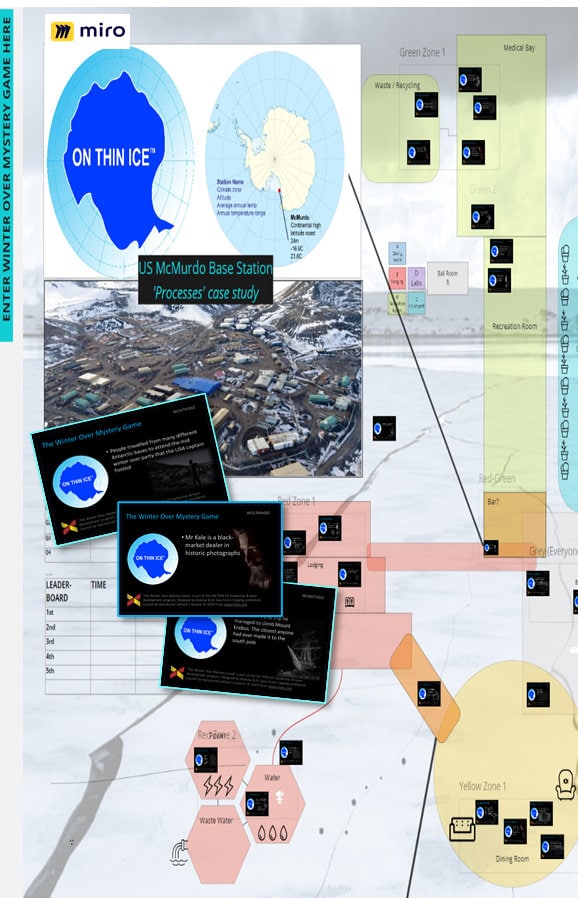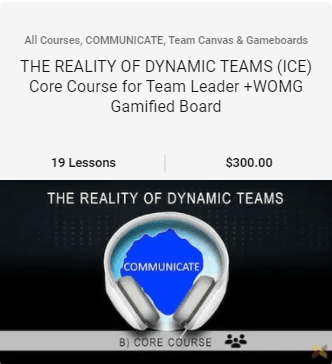The reality of virtual teams:
The processes factor

The Reality of Virtual Teams program consists of the following modules:
1
Introduction to teams:
Introduction to the I.C.E. teams & strategy (Identify, Communicate, Evaluate)
2
The Winter Over Mystery Game
Simulation: Gamified Activity
3
Building a better base through effective Processes:
Debrief & case study: Building effective processes: projects, meetings & strategic planning
4
Going Home:
Applying the learnings to the workplace

The Reality of Virtual Teams – Introduction to Virtual Teams & The Processes
Virtual work from home (WFH) remote distributed teams
Ensure virtual work from home (WFH) remote distributed teams can communicate effectively by improving processes. Good teams don’t happen by chance, with some research showing that over 80% of distributed teams fail to meet their goals. This session will address head-on these issues, and allow a team to discover the challenges they have virtually, and improve the processes to become better at collaboration and more aligned.
Gamified Simulation:
This virtual team-building gamified session challenges teams to solve a problem – remotely. In The Winter Over Mystery Game, individuals in a team have to share information only they know to solve a mystery. The team will need to learn to communicate and sort critical from irrelevant information, in the process solving a problem that can only be solved as a complete team. The simulation is deliberately themed with memorable research from Antarctica, and the insights gained are then applied to real work contexts.
Outcomes:
- To learn how to work as a team to develop hypotheses based in information available.
- To show how to develop better knowledge as a team goes through multiple cycles of hypothesis development and testing.
- To help teams understand leadership, communication, cooperation and conflict issues in team problem solving.
- To look at how to design efficient processes.
Debrief:
The experience is debriefed after the simulation. The value of this debrief is that issues that arise in the simulation
can be discussed in a safe environment to facilitate action planning and practical applications in the workplace.
Case study:
The session is based on an authentic case study related to the US Antarctic McMurdo base station design. The scientists who used the original station realized that while individual components of the station were effective, it was not effective as a whole. The new master plan demonstrated the value of an overriding strategy – including how to minimize and reduce distances between touch points, and how to improve the general processes and flow. The principles learnt from the case study example are transferred to the workplace, and participants consider how teams can run more effective projects and meetings through better strategic planning. By focusing on the core and critical activities and removing ‘waste’, teams learn how to lead for more efficient communication and collaboration.


Independently self-lead the Winter Over Mystery Game now with your team.
We have designed a core elements version of our full program. A team leader can purchase the game for their team and run it independently. The debriefing strategies focus on how to tighten team communication and collaboration processes for more effective collaborative problem-solving.
HOW? The leader purchases the session by enrolling in the online course. They then receive the gameboard URL link to run it with their team. Instructions and a basic debrief are all contained in the course and on the gameboard.
SPECS: Team size: 4-10 | Time: 90-150 mins




